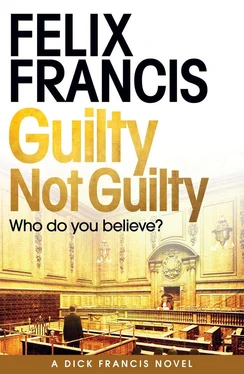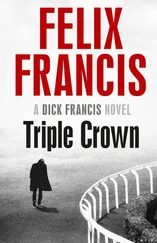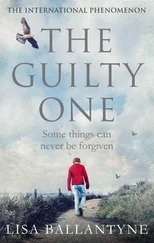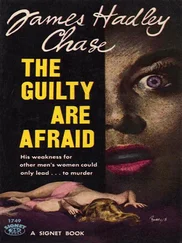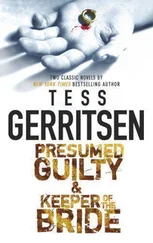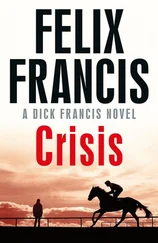‘She phoned the agent and he told her. Something about it being common practice to reduce the tax or something. Apparently he was quite open and brazen about how he had talked the buyer into the scheme to save him some money.’
Perhaps the agent was unaware that the amount raised from the inflated sale of ‘chattels’ had been paid to Joe, and not to Mary.
‘Did Amelia say anything else to you about it, anything at all?’
‘She said that she really hoped the estate agent wouldn’t tell Joe she’d called. She was worried that Joe would kill her if he knew.’
She left the last statement hanging in the air like a dense fog.
‘Now that is something we should tell the police.’
Nancy and I called and made an appointment to go and see DS Dowdeswell first thing on Monday morning.
Then we spent a couple of hours in my dining room on Sunday afternoon going through everything again to make sure we had the chronology correct.
Dave came over as well, to listen.
Nancy made a written record of everything she could remember that Amelia had told her, and I also put down on paper all I had been able to glean from Jim and Gladys Wilson, from the lawyer’s financial statement of the house sale in the desk drawer, and from Mary Bradbury’s online banking system.
At one point, Dave stood up and went over to the French windows, looking out at the garden beyond, as if thinking.
‘You know,’ he said without turning round, ‘it’s not the stealing of the hundred grand that is the real story here. That’s just peanuts.’
‘What do you mean?’ I asked.
‘Who stands to inherit when Mary Bradbury dies?’
‘I think her will states that everything was to be split equally between Amelia and Joe.’
He nodded. ‘And, after them, to their issue, meaning their children. That’s the usual way that wills are written. But Amelia doesn’t have any issue.’
He stopped and turned back to stare at me.
‘Good God,’ I said, finally understanding what he was on about. ‘So Joe will inherit everything.’
‘He sure will,’ Dave agreed. ‘Unless there is a specific clause leaving Amelia’s half to you, and I would severely doubt that.’
‘Well, we won’t have long to wait to find out,’ I said. ‘Mary Bradbury has been given only a few months to live, at most. She told me she thought she might have only a few days.’
‘All the more reason for Joe to have killed Amelia quickly, before their mother died. If he’d done it after Mary was gone, even a minute later, Amelia’s half of her mother’s estate would have then come to you via her will.’
Nancy and I arrived at Banbury Police Station at nine o’clock as instructed and we were graced with the presence not only of Detective Sergeant Dowdeswell but also of Detective Chief Inspector Priestly.
I took that to be a good sign.
Shown back into the same interview room once again, I wondered if I should have arranged for Simon Bassett or Harriet Clark to be with us, especially as I was again cautioned before the interview started.
Douglas would have insisted on it.
But it was too late now. It would take hours for them to get here, even if one of them was free.
‘How can we help?’ asked the DCI politely, which I took to be another positive step. Seemingly gone was his belligerent style and his blinkered certainty that I was the killer.
‘This is Mrs Nancy Fadeley,’ I said, indicating my companion. ‘She and her husband live across the road from me in Hanwell.’
He smiled and nodded in her direction.
‘Nancy was my wife’s best friend and we have some things to discuss with you.’
‘Yes?’ he said.
Nancy took out her piece of paper from her pocket and went through in detail every aspect of her conversation with Amelia on the night before she died. Nancy told them about Amelia having listened to her mother’s former neighbours from Weybridge, how she had then spoken to the estate agent about the plan to lower the reported sale price, and how she was convinced that her brother had stolen the money, finishing with the bit about Amelia being worried that Joe would kill her if he knew that she was aware of it.
Then I had my turn, outlining to the detectives about the trip to see the Wilsons and what they had told me about the £100,000 cheque given to Joe Bradbury, and how I had accessed my mother-in-law’s bank account to look for a deposit of that amount and had failed to do so.
The chief inspector raised his eyebrows at that.
‘How did you access the accounts?’
‘Online,’ I said. ‘Amelia has always had the login details in order to assist her mother with payments and such. Mary doesn’t understand computers and couldn’t cope with online banking.’ In truth, she could no longer cope with much. ‘I simply used the numbers and passwords that my wife had recorded in a notebook.’
‘I’m not sure that’s legal,’ said the DCI.
‘Arrest me then,’ I said.
He smiled. ‘I remind you, Mr Russell, that you have only been released under investigation. You are subject to re-arrest at any time.’
Mr Russell? Not Mr Gordon-Russell. Things were definitely on the way up.
‘I know it doesn’t prove that Joe Bradbury stole the money,’ I said. ‘He might have paid it back to his mother in another way or she might have even given it to him, but I would doubt that, as she would have then given the same to Amelia. But surely we’ve given you enough evidence to make it worth you investigating, or at least asking him.’
The DCI rubbed his chin in thought. ‘One person describing what another person has said, even if it was said to them directly, is considered by the courts to be hearsay, and is only acceptable as evidence in certain very limited circumstances as laid down in part eleven, chapter two of the Criminal Justice Act 2003.’
Oh, for goodness’ sake! How is it that all policemen are able to quote the law like that off the top of their heads? But, I suppose, I could quote almost all the 625 provisions of the Rules of Racing off mine, plus the 64 schedules and appendices.
But the DCI hadn’t finished. ‘However, even though a defence barrister wouldn’t like it, I believe that this may be one of those circumstances, as the declarant is unavailable to be called in person as a witness. And it may not be necessary to introduce it as evidence anyway, not if other inquiries determine that what the declarant is purported to have said is indeed true.’
I hoped he knew what he was on about, because I didn’t.
‘And how about me?’ I said. ‘Isn’t it also about time you officially stopped treating me as a suspect for my wife’s murder?’
‘We will consider our position on that as well, and we will let you know in due course.’
The DCI stood up as if to go.
Nancy nudged me. ‘Aren’t you going to tell him what Dave said?’
‘Who is Dave?’ asked the DCI.
‘My husband,’ Nancy said. ‘And he said something very important.’
‘Go on,’ encouraged the detective.
‘It’s only a theory,’ I said. ‘And there’s no actual evidence for it as there is for the other things we’ve just told you. But, it is a motive and I know from experience how keen you are on motives.’
The DCI sat down again. ‘I’m listening.’
‘Two weeks ago, just before Amelia was killed, Mary Bradbury learned that she has pancreatic cancer and it had already spread to her liver. The doctors have given her a few months at most, but she told me she could go at any time. And Joe knew that too.’
‘Yes?’ said the DCI.
‘Well, I believe that Mary’s last will and testament states that her estate should be split equally between her two children, that’s Amelia and Joe, and, if they predecease her, then their share goes to their further issue.’
Читать дальше
